Murthy v. Surgeon General: Supreme Court Punts on Social Media Censorship – Alito Pens Fiery Dissent6/26/2024
The expected landmark, decision-of-the-century, Supreme Court opinion on government interaction with social media content moderation and possible official censorship of Americans’ speech ended today not with a bang, not even with a whimper, but with a shrug.
The Justices ruled 6-3 in Murthy v. Missouri to overturn a lower court’s decision that found that the federal government likely violated the First Amendment rights of Missouri, Louisiana, and five individuals whose views were targeted by the government for expressing “misinformation.” The Court’s reasoning, long story short, is that the two states and five individuals lacked Article III standing to bring this suit. The court denied that the individuals could identify traceable past injuries to their speech rights. In short, a case that could have defined the limits of government involvement in speech for the central media of our time was deflected by the court largely on procedural grounds. Justice Samuel Alito, writing a dissent signed by Justices Clarence Thomas and Neil Gorsuch, implicitly criticized this punt, calling Murthy v. Surgeon General “one of the most important free speech cases to reach this Court in years.” He compared the Court’s stance in this case to the recent National Rifle Association v. Vullo, an opinion that boldly protected private speech from government coercion. The dissenters disagreed with the Court on one of the plaintiffs’ standing, finding that Jill Hines, a healthcare activist whose opinions on Covid-19 were blotted out at the request of the government, most definitely had standing to sue. Alito wrote: “If a President dislikes a particular newspaper, he (fortunately) lacks the ability to put the paper out of business. But for Facebook and many other social media platforms, the situation is fundamentally different. They are critically dependent on the protections provided by §230 of the Communications Decency Act of 1996 … For these and other reasons, internet platforms have a powerful incentive to please important federal officials …” We have long argued that when the government wants to weigh in on “misinformation” (and “disinformation” from malicious governments), it must do so publicly. Secret communications from the government to the platforms to take down one post or another is inherently offensive to the Constitution and likely to lead us to a very un-American place. Let us hope that the Court selects a case in which it accepts the standing of the plaintiffs in order to give the government, and our society, a rule to live by. During his 2020 presidential campaign, Joe Biden made a bold promise to be the most pro-union president in history. According to analysis by Tom Hebert in The Washington Times, this pledge has translated into a troubling reality. Biden has weaponized federal regulations to suppress free speech within workplaces, all to increase the strength of unions. This manipulation of regulatory power underscores a stark departure from advocating for workers' rights, veering instead towards serving union agendas at the expense of free expression.
Leading the charge in this regulatory shift is the National Labor Relations Board (NLRB). Traditionally, employers have been able to hold meetings, known as employer meetings on unionization (EMUs), to discuss unionization transparently with employees. These meetings, which have been uncontroversial since the 1940s, compensate employees for their time and educate them on their rights. The NLRB’s recent recommendation to ban EMUs marks a significant policy reversal. This move is a strategic attempt to leave workers uninformed and sway them toward union membership. This aggressive stance against EMUs has been echoed in several states, pushing to restrict these meetings despite their longstanding acceptance and the fair context in which they were traditionally held. A specific example of the NLRB's controversial approach involves Amazon CEO Andy Jassy, who faced allegations of labor law violations based on paraphrased comments from public interviews, rather than direct quotes. Jassy discussed the benefits of non-unionized workplaces, specifically noting their agility in making improvements without the bureaucratic hurdles posed by unions. However, these comments were interpreted by the NLRB as threats to workers, lacking objective evidence and direct quotes. This method of interpretation demonstrates how regulatory bodies might stretch interpretations to silence employer perspectives during union drives. Legislative initiatives like the Protecting the Right to Organize (PRO) Act underscore a growing disregard for free speech in the workplace. As Hebert says, “one little-known PRO Act provision would force employers to hand over sensitive employee contact information – including phone numbers, email addresses, home addresses and shift times – to union bosses during organizing drives. If the act became legal, workers on the fence about unionization could get a 3 a.m. knock on the door from organizers attempting to “help them make up their minds.” This provision effectively silences any counter-narrative to unionization at a critical decision-making moment, highlighting a troubling shift toward limiting open dialogue and enhancing union influence under the guise of worker protection. The ongoing crackdown on free speech in the workplace not only threatens the foundational rights of employees and employers but also reflects a larger governance trend where union interests are prioritized over open dialogue and workers' rights. The challenge lies in balancing these interests without undermining the principles of workplace democracy and freedom of expression, ensuring that all voices can be heard and respected in the critical conversations about unionization. Protect The 1st emphasizes the importance of free and open discourse in any decision-making process about unions. We look forward to further developments in this story. Sometimes it seems as if the left and the right are in a contest to see which side can be the most illiberal. With each polarity defining the other as a “threat to democracy,” restrictions on political opponents are rationalized away as a necessary act of public hygiene. Recent events in Europe, from Budapest to Brussels, should serve as a warning to Americans who want to use police power to make their opponents shut up.
In December, the U.S. State Department warned that a new Sovereign Defense Authority law in Hungary “can be used to intimidate and punish” Hungarians who disagree with Prime Minister Viktor Orbán and his ruling party. No less an observer than David Pressman, the U.S. ambassador in Budapest, said: “This new state body has unfettered powers to interrogate Hungarians, demand their private documents and utilize the services of Hungary’s intelligence apparatus – all without any judicial oversight or judicial recourse for its targets.” So how are left-leaning critics responding to the rise of the Europe right? By also using intimidation to shut down speech. In Brussels, police in April acted on orders from local authorities by forcibly shutting down a National Conservatism conference. This event, which was to host discussions among European conservative figures, including Prime Minister Orbán and former Brexit champion Nigel Farage, was terminated hours after it began. The cited reasons for the closure included concerns over potential public disorder linked to planned protests. Such a policy, of course, gives protesters pre-emptive veto power over controversial speech, backed by the police. The conference had earlier faced official meddling to prevent the selection of a venue. Initial plans to host the event at the Concert Noble were thwarted due to pressure from the Socialist mayor of Brussels. Subsequently, a booking at the Sofitel hotel in Etterbeek was canceled after local activists alerted that city’s mayor, who pressured the hotel to withdraw its support. Finally, the organizers settled on the Claridge Hotel, only to encounter further challenges including threats to the venue’s owner and logistical disruptions orchestrated by local authorities, culminating in the police blockade that effectively stifled the conference. The good news is public response to the shutdown of the National Conservatism conference was vocal and critical. Belgian Prime Minister Alexander De Croo voiced a strong objection, stating that such bans on political meetings were unequivocally unconstitutional. British Prime Minister Rishi Sunak also responded that canceling events and de-platforming speakers is damaging to democracy. The closure in Brussels is particularly ironic given the city's status as the capital of the European Union, a supposed bastion of liberal democratic values. The forced closure, threats to cut electricity, and the barring of speakers are tactics that betray a fundamental disrespect for democratic norms. What transpired was a scenario more befitting a "tinpot dictatorship," as Frank Füredi, one of the event's organizers, put it. Speech crackdowns seem to be a European disease. This aggressive move to silence a peaceful assembly under the guise of preventing disorder echoes the same illiberal impulses driving Scotland's Hate Crime and Public Order Act. That law broadly criminalizes speech under the expansive banner of “stirring up hatred.” Americans would do well to look to Europe to see what cancellation and criminalization of speech looks like. As the cities and campuses of the United States face what promises to be a hot summer of protest over Gaza, Americans need to keep a relentless focus on protecting speech – even speech one regards as heinous – while preventing tent city invasions, vandalism, and violence that compromises the rights of others. Reporters Without Borders dropped the United States 10 places on its annual rankings from last year, from 45th to 55th place out of 180 countries in its 2024 World Press Freedom Index. This is part of a trend. This NGO has downgraded the United States, which enshrines freedom of the press in our Constitution, from 17th best for press freedom in 2002 to that 55th place now.
To be fair, some of the organization’s metrics are questionable. For example, Argentina fell from 40th place last year to 66th place in 2024 after newly elected President Javier Miliei shuttered news outlet Télam and put its 700 journalists on the street. It should be noted, however, that Télam was a money-losing, state-funded news agency founded by Juan Perón and known for being a government and Peronista mouthpiece under previous administrations. So how fairly did Reporters Without Borders treat the United States? It seems overkill to us to rank the United States below the Ivory Coast, where reporters are routinely called in by prosecutors and newspapers are suspended – or Romania, where a prominent journalist who investigated the government had her personal images hacked and uploaded to an adult website. At the same time, while we can take issue with the overall ranking of the United States, this NGO is correct on what the British call the direction of travel. Protect The 1st has reported what Reporters Without Borders states: “In several high-profile instances, local law enforcement has carried out chilling actions, including raiding newsrooms and arresting journalists.” We would add to that the lack of a federal press shield law also leaves reporters vulnerable to being wiretapped and worse. The good news is that protections for reporters have a strong basis of public support in the United States. A recent survey by the Pew Research Center reveals robust support among Americans for the principle of press freedom, underscoring its vital role in our democracy. It’s heartening to note that nearly three-quarters of U.S. adults (73 percent) consider the freedom of the press — enshrined in the First Amendment — extremely or very important to the well-being of society. Still, we have reason for caution. While a significant majority of Americans acknowledge the importance of a free press, many are concerned about threats to journalistic freedom. Notably, a substantial portion of the population believes U.S. media is influenced by corporate and political interests — 84 percent and 83 percent respectively. In our polarized society, partisan differences color these perceptions of press freedom. Republicans and Independents consistently express greater concern over media restrictions and the influence of political interests compared to Democrats. Equally concerning is the broader debate over the balance between safeguarding press freedom and curbing “misinformation.” Approximately half of the American population is torn between the necessity to prevent the spread of false information and the imperative to protect press freedoms, even if it means some false information might circulate. While it's encouraging to see strong support for journalistic freedoms among Americans, local authorities must understand that raids and legal threats against reporters is intolerable under our Constitution and under the press shield laws of 49 states. And we need a federal press shield law – the PRESS Act, which recently passed the U.S. House – to reduce the shadow the Department of Justice can cast over the free exercise of journalism. We’ve got work to do. Can a protest organizer be held civilly liable for the unlawful actions of another at a demonstration? That’s the question at issue in McKesson v. Doe, one with significant implications for protected speech.
The case’s circuitous journey through the courts started in 2016, when an anonymous Louisiana law enforcement officer was struck with a “rock-like” object hurled by an unknown person at a Black Lives Matter protest. This was a despicable act of violence that was in no sense expressive speech. Those who commit such acts of violence must be prosecuted to the fullest extent of the law. But what is the liability of those who organize a peaceful protest that is infiltrated by the violent? Plaintiff John Doe brought suit against activist DeRay McKesson, who organized the event, on the theory that McKesson’s role as the event organizer encompassed a duty to protect everyone present. In 2020, the U.S. Supreme Court vacated the Fifth Circuit’s decision against McKesson, which upheld a novel theory from Doe of “negligent protest.” The Court remanded the case to the Louisiana Supreme Court, instructing it to analyze whether state law actually provides for negligence liability in such situations. This decision seems to ignore precedent in NAACP v. Claiborne Hardware, which held that “[c]ivil liability may not be imposed merely because an individual belonged to a group, some members of which committed acts of violence.” The Louisiana Supreme Court ultimately reached the conclusion that state tort law does, in fact, provide Doe with a cause of action. As a result, the Fifth Circuit reinstated its ruling and the case returned again to the highest court in the land. Notably, the Supreme Court ruled in the intervening years in Counterman v. Colorado that a subjective, mens rea standard (meaning specific intent, not just negligence) is required for a finding of liability in lawsuits that seek to punish speech. Justice Kagan wrote that the “First Amendment precludes punishment, whether civil or criminal, unless the speaker’s words were ‘intended’ (not just likely) to produce imminent disorder.” Accordingly, in an order rejecting certiorari in the McKesson case earlier this month, Justice Sotomayor strongly implied that the Court has already settled this question of law. She wrote, “Although the Fifth Circuit did not have the benefit of this Court’s recent decision in Counterman when it issued its opinion, the lower courts now do. I expect them to give full and fair consideration to arguments regarding Counterman’s impact in any future proceedings in this case.” The Supreme Court clearly wants to allow some deference to state law. However, it seems entirely reasonable to require a showing of intent in situations involving the random outbreak of violence at protests. Failure to do so could have a significant, chilling effect on political speech. If civil liability can be assigned for merely organizing an event, then we’re likely to see a lot less civil discourse in the future. Journalists have similar concerns. As the Reporters Committee for Freedom of the Press explains, protecting against liability for the “uncoordinated,” lawless actions of others “is a critical safeguard for reporters who attend tumultuous events where violence may break out — political rallies, say, or mass demonstrations — in order to bring the public the news.” It remains possible the Fifth Circuit may reevaluate its ruing in light of Counterman, but it’s disappointing that the Supreme Court declined to weigh-in in a meaningful way. When states start imposing low liability thresholds on protestors, it jeopardizes First Amendment protections for all of us. Can a government regulator threaten adverse consequences for banks or financial services firms that do business with a controversial advocacy group like the National Rifle Association? Can FBI agents privately jawbone social media platforms to encourage the removal of a post the government regards as “disinformation”?
As the U.S. Supreme Court considers these questions in NRA v. Vullo and Murthy v. Missouri, a FedSoc Film explores the boundary between a government that informs and one that uses public resources for propaganda or to coerce private speech. (“Nice social media company you have there. Shame if anything happened to it.”) Posted next to this film, Jawboned, on the Federalist Society website is Protect The 1st’s own Erik Jaffe, who in a podcast explores the extent to which the government, using public monies and resources, should be allowed to speak, if at all, on matters of opinion. Is the expenditure of tax dollars to push a favored government viewpoint a violation of the First Amendment rights of Americans who disagree with that view? Jaffe thinks so and argues why this is the logical conclusion of decades of First Amendment jurisprudence. Furthermore, when the government tells a private entity subject to its power or control what the government thinks it ought to be saying (or not saying), Jaffe says, “there’s always an implied ‘or else.’” And even the government’s own public speech often has coercive consequences. As if to underscore this point, Jawboned recounts the story of how the federal Office of Price Administration during World War Two lacked the authority to order companies to reduce prices but did threaten to publicly label them and their executives as “unpatriotic.” That was a very real threat in wartime. Imagine the “or else” sway government has today over highly regulated firms like X, Meta, or Google. In short, Jaffe argues that a line is crossed when “the power and authority of the government” is invoked to use “the power of office to coerce people.” But it also crosses the line when the government uses its resources (funded by compelled taxes and other fees) to amplify its own viewpoint on questions being debated by the public. Such compelled support for viewpoint selective speech violates the freedom of speech of the public in the same way compelled support for private expressive groups and viewpoints does. Click here to listen to more of Erik Jaffe’s thoughts on the limits of government speech and to watch Jawboned. Lindke v. Freed The U.S. Supreme Court is set to address several critical free-speech cases this session related to speech rights in the context of social media. One of those questions was recently settled, with the Court ruling on whether an official who blocks a member of the public from their social media account is engaging in a state action or acting as a private citizen. Answer: It depends on the context.
Writing for a unanimous Court in the case of Lindke v. Freed, Justice Amy Coney Barrett reaffirmed that members of the public can sue a public official where their actions are “attributable to the State” (consistent with U.S.C. §1983). In order to make that determination, the Court issued a new test, holding that: “A public official who prevents someone from commenting on the official’s social-media page engages in state action under §1983 only if the official both (1) possessed actual authority to speak on the State’s behalf on a particular matter, and (2) purported to exercise that authority when speaking in the relevant social-media posts.” This is a holistic analysis, consistent with the Protect The 1st amicus brief filed in O’Connor-Ratcliff v. Garnier. We argued that “no single factor is required to establish state action; rather, all relevant factors must be considered together to determine whether an account was operated under color of law.” That case, along with the Court’s banner case, Lindke v. Freed, is now vacated and remanded for new proceedings consistent with the Court’s novel test. When, as the Court acknowledges, “a government official posts about job-related topics on social media, it can be difficult to tell whether the speech is official or private.” So the Court set down rules. A state actor must have the actual authority – traced back to “statute, ordinance, regulation, custom, or usage” – to speak on behalf of the state. However, should an account be clearly designated as “personal,” an official “would be entitled to a heavy (though not irrebuttable) presumption that all of the posts on [their] page were personal.” In Lindke v. Freed, the public official’s Facebook account was neither designated as “personal” nor “official.” Therefore, a fact-specific analysis must be undertaken “in which posts’ content and function are the most important considerations.” As the Court explains: “A post that expressly invokes state authority to make an announcement not available elsewhere is official, while a post that merely repeats or shares otherwise available information is more likely personal. Lest any official lose the right to speak about public affairs in his personal capacity, the plaintiff must show that the official purports to exercise state authority in specific posts.” When a public official blocks a citizen from commenting on any of his posts on a “mixed-use” social media account, he risks liability for those that are professional in nature. Justice Barrett writes that a “public official who fails to keep personal posts in a clearly designated personal account therefore exposes himself to greater potential liability.” It's always been good policy to keep official and private accounts separate. The public must be able to have access to government-issued information, whether through a social media account or a public notice posted on the door of a government building. Moreover, citizens should be able to speak on issues of public concern, whether through Facebook or in a public square. Officials – presidents and former presidents included – should take note. In November, we reported on a controversy in the San Antonio suburb of Castle Hills, which epitomizes the growing trend of using the law to punish disfavored speech. The Supreme Court’s recent argument reveals several justices showing solidarity with the arrested party.
Here are the facts: Sylvia Gonzalez was elected to a seat on the Castle Hills city council in 2019. During her first council meeting, a resident submitted a petition to remove the city manager – a petition spearheaded by Gonzalez – and it wound up in Gonzalez’s personal binder of documents. After being asked for the petition by the mayor, Gonzalez found it among her effects and handed it over. The mayor initiated an investigation into Gonzalez under a Texas statute providing that “[a] person commits an offense if he […] intentionally destroys, conceals, removes, or otherwise impairs the verity, legibility, or availability of a governmental record.” A warrant was subsequently served against Gonzalez, who was taken to jail and resigned from the council in humiliation. Gonzalez claims her arrest was retaliatory – trumped-up charges based on a little enforced statute and stemming from her support for removing the city manager. At issue is a legal doctrine known as the “jaywalking exception,” which guards against law enforcement arresting people for protected speech under the guise of some other petty statutory violation. In Nieves v. Bartlett, the Supreme Court held that retaliatory arrest claims may proceed where probable cause exists – as it technically did with Gonzalez – but a plaintiff is arrested in a situation where officers “typically exercise their discretion not to do so.” In such circumstances, a plaintiff must present “objective evidence that he was arrested when otherwise similarly situated individuals not engaged in the same sort of protected speech had not been.” Attempting to satisfy the exception, Gonzalez presented evidence that not one of 215 grand jury felony indictments in Bexar County under a tampering statute over the preceding decade involved an allegation remotely similar to the one levied against her. The Fifth Circuit found this insufficient, holding that Nieves requires comparative evidence of individuals who engaged in the “same” criminal conduct but were not arrested. In other words, going by the Fifth Circuit’s interpretation, Gonzalez would have to find specific instances of people who misplaced government documents but were not arrested. How would anyone even find such instances? The Fifth Circuit tasked her with proving a negative. If the Fifth Circuit’s decision is left in place, Protect The 1st explained it would make it easier for law enforcement or other government officials to punish critics for expressing protected speech based on novel applications of relatively minor criminal laws. It also sets the evidentiary bar so high that few could ever hope to prove their case in a court of law. During oral arguments, several justices seemed to agree. Justice Gorsuch, speaking about the many unenforced statutes on the books, said: “You're saying they can all sit there unused, except for one person who alleges that ‘I was the only person in America who's ever been prosecuted for this because I dared express a view protected by the First Amendment,’ and that's not actionable?” Justice Kagan, clearly thinking along the same lines, said the plaintiff has “solid objective evidence” that they were treated differently than similarly situated persons, noting: “You should be able to say, ‘They've never charged somebody with this kind of crime before and I don't have to go find a person who has engaged in the same conduct.’” Justice Jackson made similar remarks, while Chief Justice Roberts, who authored Nieves, seemed to take the other side, questioning whether expanding the evidentiary basis for refuting probable cause is consistent with the Court’s earlier ruling. It “seems to me to be inconsistent,” he said. Justice Kavanaugh likewise noted, "If you intentionally stole a government document at a government proceeding — that's not nothing.” Why Gonzalez would want to hide a petition she helped organize is far from clear. Her conduct was so benign that the only inference one can reasonably draw is that she was the target of retaliation. Protect The 1st hopes the Court sides with her and makes it clear they will hold public officials accountable for weaponizing the law against those who speak their minds. Donor privacy is under unprecedented threat across the country. According to a report last month from the non-partisan People United for Privacy, efforts to curb historical privacy protections are underway in no fewer than 31 states.
Matt Nese of People United for Privacy details this threat in a recent RealClear Policy piece, describing the means by which politicians of all political stripes ceaselessly endeavor to dox nonprofit donors, often under the guise of curbing the influence of “dark money” or foreign sources of funding. In practice, it’s rank-and-file domestic contributors – exercising their fundamental speech rights – who end up being harmed the most by such efforts. Look no further than Arizona’s Prop 211, the misleadingly titled “Voters Right to Know Act.” That measure was marketed as requiring disclosure of political “campaign” donors. Instead, it targets any group that speaks out on public policy issues – including nonprofits. It opens the door not just to self-censorship by those who may otherwise be inclined to donate to a cause, but also the possibility of doxing, intimidation, harassment, and cancellation. Multiple legal challenges to Prop 211 are ongoing. Should these challenges make it to the U.S. Supreme Court, history suggests it’s unlikely the justices will uphold the law. The Court first established our bedrock principle regarding donor privacy and the First Amendment in 1958 when it struck down a State of Alabama requirement that the NAACP reveal its donors. That potential for compelled disclosure would almost certainly have led to “harassment, economic reprisal, and physical harm” – danger enough for the Court to act to protect the First Amendment. Such reasoning carried through to 2021 when the Supreme Court struck down a California requirement for compelling donor disclosure for nonprofits. In the majority opinion, Chief Justice John Roberts noted “that it is hardly a novel perception that compelled disclosure of affiliation with groups engaged in advocacy may constitute as effective a restraint on freedom of association as [other] forms of governmental action.” The 2021 ruling hasn’t dissuaded the political class from continuing to push the boundaries when it comes to donor privacy. In Hawaii, SB 997 would require donor disclosure in the case of “[c]ommunications that advocate or support the nomination, opposition, or election of a candidate, regardless of whether the communication expressly advocates the election or defeat of a candidate.” In Washington, legislation is being developed purporting to ban so-called “foreign influenced” entities from participating in the political process if so much as 1 percent of their equity is owned by a foreign interest. Currently, foreign participation in elections is illegal; this is a clear attempt to curb the speech rights of Americans – and particularly non-profits who may rely on donations from large corporations. In these states, the war on donor privacy is not yielding to well-established precedent. This nationwide campaign is predicated on the not-unlikely hope that enough assaults will exhaust the courts and strip donors of privacy, bringing cancellation policies and doxing to donors of all stripes. Protect The 1st will continue to monitor these threats to the privacy necessary to protect free speech in America. The recent House passage of a bill to force the sale of TikTok from its Chinese parent company – or suffer an outright ban – triggers obvious questions about the First Amendment. Many of our fellow civil liberties organizations have come to TikTok’s defense, making the point that if the government can silence one social media platform, it can close any media outlet, newspaper, website, or TV channel.
They point to many of TikTok’s strongest critics, who accuse it of pushing China’s line on sensitive issues and dividing Americans in what promises to be an especially heated election season. But our civil liberties allies remind us that the First Amendment protects all speech, no matter how divisive, even if it echoes foreign propaganda. That is fine as far as it goes, but there are other issues beyond the First Amendment in the TikTok debate. Here is where we break ranks with some of our peers: We see real danger in TikTok’s accumulation of the personal data of its 150 million American users, and 67 percent of U.S. teens – and how TikTok’s influence could harm the First Amendment by threatening the freedom of the press and the speech of users. After reviewing results from a year-long, bipartisan investigation, the House concluded that TikTok is being used by Beijing to spy on American citizens. TikTok’s parent company, ByteDance, has had a notorious relationship with the Chinese Communist Party (CCP). As we wrote last year, the Department of Justice and FBI have been investigating ByteDance over CCP access to Americans’ data. According to Emily Baker-White, a Forbes reporter who was herself surveilled by ByteDance, the department and U.S. Attorney for the Eastern District of Virginia have hit the Chinese firm with subpoenas about its purported surveillance of U.S. journalists. The company’s data policies have led multiple states to ban the app on state employee devices. It would be a flagrant violation to ban a newspaper for its content. But what if a hostile power deliberately manufactured newspapers with arsenic dye, toxic to the touch? In such a case, First Amendment issues would be irrelevant. ByteDance is compelled by Chinese law to share all its data with the Beijing government, and its military and intelligence agencies. Senators should determine whether the toxicity of the threats posed by TikTok's data practices and its relationship with the CCP necessitate action. This is not the first time the United States has forced a Chinese company to divest a social media platform. In 2020, the Committee on Foreign Investment in the United States raised the alarm about Kunlun Tech’s acquisition of Grindr, a popular LGBTQ dating app. The app already had a poor reputation for data security, but the committee was reportedly worried that the Chinese government could use personal data from the app to blackmail U.S. citizens, including government officials. The committee gave Kunlun a deadline by which it had to sell Grindr, and the app was sold back to an American owner. Forcing a media outlet to sell or go out of business is a drastic action, not to be undertaken lightly. But as the Senate debates, we should keep in mind that there are issues at stake in the TikTok controversy that go beyond the First Amendment. The U.S. Supreme Court heard oral arguments Monday in Murthy v. Missouri, a case addressing the government's covert efforts to influence social media content moderation during the Covid-19 pandemic. Under pressure from federal and state actors, social media companies reportedly engaged in widespread censorship of disfavored opinions, including those of medical professionals commenting within their areas of expertise.
The case arose when Missouri and Louisiana filed suit against the federal government arguing that the Biden Administration pressured social media companies to censor certain views. In reply, the government responded that it only requested, not pressured or demanded, that social media companies comply. Brian Fletcher, U.S. Principal Deputy Solicitor General, told the Court it should “reaffirm that government speech crosses the line into coercion only if, viewed objectively, it conveys a threat of adverse government action.” This argument seems reasonable, but a call from a federal agency or the White House is not just any request. When one is pulled over by a police officer, even if the conversation is nothing but a cordial reminder to get a car inspected, the interaction is not voluntarily. Social media companies are large players, and an interaction with federal officials is enough to whip up fears of investigations, regulations, or lawsuits. In Murthy v. Missouri, it just so happens that the calls from federal officials were not just mere requests. According to Benjamin Aguiñaga, Louisiana’s Solicitor General, “as the Fifth Circuit put it, the record reveals unrelenting pressure by the government to coerce social media platforms to suppress the speech of millions of Americans. The District Court which analyzed this record for a year, described it as arguably the most massive attack against free speech in American history, including the censorship of renowned scientists opining in their areas of expertise.” At the heart of Murthy v. Missouri lies a fundamental question: How far can the government go in influencing social media's handling of public health misinformation without infringing on free speech? Public health is a valid interest of the government, but that can never serve as a pretense to crush our fundamental rights. When pressure to moderate speech is exerted behind the scenes – as it was by 80 FBI agents secretly advising platforms what to remove – that can only be called censorship. Transparency is the missing link in the government's current approach. Publicly contesting misinformation, rather than quietly directing social media platforms to act, respects both the public's intelligence and the principle of free expression. The government's role should be clear and open, fostering an environment where informed decisions are made in the public arena. Perhaps the government should take a page from Ben Franklin’s book (H/T Jeff Neal): “when Men differ in Opinion, both Sides ought equally to have the Advantage of being heard by the Publick; and that when Truth and Error have fair Play, the former is always an overmatch for the latter …” Protect The 1st looks forward to further developments in this case. A case from Grants Pass, Oregon, presents a compelling study and examination of the role that religious charities play in helping the helpless.
In 2018, a group of homeless people sued the City of Grants Pass over its municipal ordinances – and hefty fines – meant to prohibit sleeping on public land. Specifically, the group alleged violations of the Eighth Amendment, which bans “cruel and unusual punishment.” In 2023, the Ninth Circuit Court of Appeals ruled for the plaintiffs using its own particularized formula that bans the prosecution of homeless people if there “is a greater number of homeless individuals … than the number of available” shelter beds. At the same time, the court relied on precedent asserting that shelters with a “mandatory religious focus” could not be included in their calculations due to possible violations of the Constitutional prohibition against the establishment of religion. Whatever one thinks of the underlying issue about rights and responsibilities regarding homelessness, the Ninth Circuit’s disregard for religious charitable organizations shows a broader legal hostility towards religion itself. Worse, it discounts religious institutions’ many contributions to social welfare and safety. In 1971, the Supreme Court held in Lemon v. Kurtzman that state statutes do not violate the Establishment Clause if they: 1) have a secular purpose 2) do not advance or inhibit religion, and 3) do not result in “excessive government entanglement” with religion. The test was used repeatedly as a means to disenfranchise – or entirely disregard – religious institutions that contribute to the public good. In 2022’s Kennedy v. Bremerton School District, U.S. Supreme Court Justice Neil Gorsuch instructed lower courts to ignore Lemon, instead directing them towards a historical analysis that takes into account what was understood as a religious “establishment” when our nation was founded. Unfortunately, this guidance is largely disregarded across the United States. As the Becket Fund writes, “[f]or decades, the Lemon test had caused courts to incorrectly apply the Establishment Clause, driving religious people and religious ideas out of public life. Even though Lemon was overturned, many lower courts, including ones within the Ninth Circuit, continue to rely on it.” Becket’s amicus brief before the U.S. Supreme Court, which is set to review the case soon, urges the justices to “reiterate that courts should apply a historical test” when deciding on Establishment Clause violations. Much is at stake behind this seemingly esoteric legal issue. Religious institutions unquestionably have always had and continue to have a major role in providing a social safety net in the United States. Continuing to rely on the Lemon test, which categorically excludes religious organizations from public life due to their “overall religious atmosphere,” is a gross overextension and misinterpretation of the First Amendment’s Establishment Clause. As the Becket Fund notes, it “confuses private and state action” when it comes to making distinctions about religion. Overall, this ruling is indicative of widespread local government dismissal of, or even hostility toward, the social contributions of people of faith. If a theocracy is one extreme the courts wish to avoid, a secular lack of acceptance for religious pluralism is the opposite extreme. Governments should welcome religious institutions that provide social safety nets. And it starts with the rejection of a reactionary, overruled legal doctrine that discredits the civic contribution of religious charities. School choice continues roll across the country. Since 2021, ten states have passed universal choice measures, with more states moving in that direction way.
In Texas, school choice met its Alamo in the Texas Legislature late last year. But Texans remember the Alamo with fondness because only a few weeks after that tragedy, Texans won their independence. And so it has been for school choice. In the recent slate of elections, it was six of the anti-school choice incumbents who were ousted. Four are currently fighting to retain their seats in a runoff. Their winning challengers were endorsed by Texas Gov. Greg Abbott, who aims to work with the new legislators to push through his plan for education savings accounts for the over five million K-12 students in the nation’s second most-populous state. Why did the legislators, conservative and rural Republicans, stop school choice in the first place? They were worried that school choice would divert funds away from their rural public schools. This is an understandable fear for counties with small populations and scant resources. Gov. Abbott promised extra resources for these areas. These fears were further allayed by Tom Newell, a former Republican Oklahoma legislator whose timely op-ed in the Wall Street Journal called on rural Republicans to embrace school choice. Newell wrote that parents, teachers, and politicians are often afraid to speak out in favor of educational freedom, lest they attract the wrath of the local superintendent or teachers’ union representative. When Newell announced his candidacy, he wrote that “a consultant told me I couldn’t support education freedom and get elected in rural Oklahoma.” Nevertheless, Newell campaigned on educational freedom and won with 61 percent of the vote. “There’s a silent majority of parents who know education freedom is good for their kids. Empowering those parents will help, not hurt, your re-election.” It is easy to see why. Competition is proven to drive educational success. School choice is also the ultimate, intergenerational expression of the First Amendment, giving parents the power to choose to extend their values and heritage across generations. Over 70 percent of Americans support school choice. Minority voters take the lead, with 83 percent of Black and 77 percent of Hispanic voters registering their support. Once the strongest bloc of opposition to school choice, 68 percent of Democrats support school choice. Pennsylvania Gov. Josh Shapiro declared that school choice is important because “every child of God” deserves a “quality education.” More than 180 Democrats holding office at all levels are members of Democrats for Education Reform, which seeks to promote school choice policies in the Democratic Party. The group calls on Democratic politicians to adopt education freedom, declaring on its website: “If Democratic lawmakers want to be the champions of public education excellence and equity, they need to do some serious soul searching on how they position themselves on public charter schools.” Newell now travels the country promoting education freedom to lawmakers. To rural Republicans who are concerned about the viability of school choice in their areas, he says, “In the district I represented, there wasn’t a marketplace until there was. An educational marketplace definitely won’t arise in places where one-size-fits-all laws block it.” School choice is poised to take the nation by storm. It can no longer be held up by vested interests and timid politicians. Protect The 1st looks forward to seeing the Lone Star State be the next to offer families educational choice. A bill under consideration in Kentucky would neuter the state’s public records law, limiting access to government documents and shielding state decision-makers from scrutiny in the Bluegrass state.
This latest legislation is part of a larger trend away from public disclosure. Two years ago, Kentucky Gov. Andy Beshear, a Democrat, opposed a provision exempting that state’s legislature from public records requests, calling it a “recipe for secrecy.” He vetoed that bill but was overridden by the legislative majority, which argued that a deliberative body has a unique need for privacy. This new bill goes further, however, encompassing boards, commissions, state officials, and local government. This current proposal exempts drafts, notes, correspondence with private parties, preliminary recommendations, personal communications conducted on government devices, any communications related to personal opinion, and – glaringly – information stored on a personal device. Want to make sure the public doesn’t know what government officials are up to? They can simply conduct government business on their smartphones. This bill is a roadmap for avoiding accountability. That Gov. Beshear was overridden by a supermajority comfortable with legislative privacy does not bode well for stopping this latest attempt by Kentucky officials to hide bureaucrats in the bluegrass. All 50 states have some form of public records statute ensuring public access to the reports, memos, and other documents that describe official thinking behind regulatory or political decisions. These laws constitute state-level versions of the Freedom of Information Act, intended to bring the disinfecting rays of sunlight into the oft-opaque inner workings of government. Yet a host of states across the country also exempt large swaths of documents from disclosure. In Massachusetts, Oklahoma, Oregon, and Wyoming, legislatures are entirely exempt from public records laws. In Georgia and Minnesota, they are simply excluded from the definition of an agency subject to freedom of information requests. While some jurisprudence weighs against legislative privilege in favor of public access, there are also good arguments as to why legislatures, specifically, should not have to hand over their deliberative internal communications. When FOIA passed in 1966, Congress was specifically omitted from the definition of an “agency” required to respond to public record requests. As the non-partisan Congressional Research Service summarizes, “applying FOIA to Congress may alter the functioning of the legislative process and implicate certain constitutional provisions, including the Journal Clause (art. I, §5, cl. 3) and the Speech or Debate Clause (art. I, §6, cl. 1).” In other words, a Congressional FOIA could chill legitimate debate and decision-making. The same argument could likewise extend to state legislatures. Whatever one thinks of legislative exemptions to public records requests, bureaucrats and agencies simply should not have the right to expansive non-disclosure as spelled out in the latest Kentucky bill. Should it pass, it will be a near total subversion of the policy underlying the state’s public records law – a fatal blow to any semblance of good governance, transparency, and accountability. The U.S. Court of Appeals for the Second Circuit recently heard oral arguments in the case of Volokh v. James. It’s another in a series of critical recent cases involving government regulation of online speech – and one the Empire State should ultimately lose.
In 2022, distinguished legal scholar and Protect The 1st Senior Legal Advisor Eugene Volokh – along with social media platforms Rumble and Locals – brought suit against the state of New York after it passed a law prohibiting “hateful” conduct (or speech) online. Specifically, the law prohibits “the use of a social media network to vilify, humiliate, or incite violence against a group or a class of persons on the basis of race, color, religion, ethnicity, national origin, disability, sex, sexual orientation, gender identity or gender expression.” The law also requires platforms to develop and publish a policy laying out how exactly they will respond to such forms of online expression, as well as to create a complaint process for users to report objectionable content falling within the boundaries of New York’s (vague and imprecise) prohibitions. Should they fail to comply, websites could face fines of up to $1,000 per day. There are a number of problems with New York’s bid to regulate online speech – not least of which is that there is no hate speech exception to the First Amendment. As the Supreme Court noted in Matal v. Tam, “speech that demeans on the basis of race, ethnicity, gender, religion, age, disability, or any other similar ground is hateful; but the proudest boast of our free speech jurisprudence is that we protect the freedom to express ‘the thought that we hate.’” Moreover, the law fails to define key terms like “vilify,” “humiliate,” or “incite” – leaving its interpretation up to the eye of the beholder. As Volokh explained in a piece for Reason, “it targets speech that could simply be perceived by someone, somewhere, at some point in time, to vilify or humiliate, rendering the law's scope entirely subjective.” Does an atheist’s post criticizing religion “vilify” people of faith? Does a video of John Oliver making fun of the British monarchy “humiliate” the British people? The hypotheticals are endless because one’s subjective interpretation of another’s speech could cut a million different ways. In February 2023, a district court ruled against New York, broadly agreeing with Volokh’s arguments. As Judge Andrew L. Carter, Jr. wrote: “The Hateful Conduct Law both compels social media networks to speak about the contours of hate speech and chills the constitutionally protected speech of social media users, without articulating a compelling governmental interest or ensuring that the law is narrowly tailored to that goal.” To be fair, there is a purported government interest at play here, even if it’s not compelling in the broader context of the law’s vast, unconstitutional reach. The New York law is a legislative response to a 2022 Buffalo supermarket shooting perpetrated by a white supremacist who was, by all accounts, steeped in an online, racist milieu. Every decent person wants to give extremist views no oxygen. But incitement to violence is already a well-established First Amendment exception – unprotected by the law. Broadly compelling websites to create processes for addressing subjective, individualized offenses simply goes too far. Anticipating New York’s appeal to the Second Circuit, a number of ideologically disparate organizations joined with the Foundation for Individual Rights and Expression, or FIRE, (which is prosecuting the case), submitting amicus curiae briefs in solidarity with Volokh and his co-plaintiffs. Those groups – which include the American Civil Liberties Union, the Electronic Frontier Foundation, the Cato Institute, and satirical website the Babylon Bee – stand in uncommon solidarity against the proposition that government should ever be involved in private content moderation policies. As the ACLU and EFF assert, "government interjection of itself into that process in any form raises serious First Amendment, and broader human rights, concerns." True to form, the Babylon Bee’s brief notes that “New York's Online Hate Speech Law would be laughable – if its consequences weren't so serious.” When the U.S. Supreme Court renders its opinion on the Texas and Florida social media laws, it will give legislatures a better guide to developing more precise, articulable means of addressing online content. Reporters treat promises of confidentiality to potential sources as sacred for a reason. The promise of anonymity is the bedrock upon which investigative journalism rests. This promise is so central to a free press that a bill to codify its protection is currently wending its way through Congress. The PRESS Act would protect journalists and their sources by granting a privilege to shield confidential news sources in federal legal proceedings.
CBS went one step further after it terminated investigative journalist Catherine Herridge: the news division reportedly seized her files, including private information about privileged sources. Lawyer Jonathan Turley writes CBS is “moving toward a resolution,” with some reports indicating CBS has already returned the files. But the initial action, which sparked widespread concern among CBS employees, is instructive about the need to protect reporters and sources. Turley in The Hill wrote that the “the timing of Herridge’s termination immediately raised suspicions in Washington. She was pursuing stories that were unwelcomed by the Biden White House and many Democratic powerhouses,” which landed her in hot water with CBS executives. After she was terminated, the network seized her notes and files, informing her that it would decide what would be released to her. Such an action defied established media tradition. “Journalists are generally allowed to leave with their files,” Turley writes. “Under the standard contract, including the one at CBS, journalists agree that they will make files available to the network if needed in future litigation. That presupposes that they will retain control of their files.” CBS also suggested that it would allow unnamed individuals to look through Herridge’s files to determine what she would have been allowed to keep. A former CBS manager said that he had “never heard of anything like this.” The Screen Actors Guild-American Federation of Television and Radio Artists union (SAG-AFTRA) has raised the issue with CBS, noting the effect of this action could have on journalistic practices and source confidentiality. If this issue is, in fact, not resolved as reported, the union could well take this to court to test Herridge’s claim to her notes. Why did CBS News risk tarnishing its own legacy? It shouldn’t matter if Herridge’s investigation is of Hunter Biden’s laptop, Donald Trump, Robert F. Kennedy Jr., or the My Pillow Guy. By originally suggesting that CBS will unilaterally decide the fate of Herridge's files, including those originating from her tenure at Fox News, the network risked undermining the willingness of sources to come forward with sensitive information for all news gatherers. This is one more reason why Protect The 1st stands firmly in favor of The PRESS Act. As we wrote last November, ironically about Catherine Herridge in a different context, the PRESS Act would have made a difference when she was ordered by a federal judge to reveal the identity of confidential sources she used for a series of 2017 stories published while she worked at Fox News. If CBS did hold on to the files, it could easily lose control of them through a leak or litigation. If ordered by a court to reveal these documents, would executives have risked jail time like Herridge has done? Although the First Amendment does not apply to a private company, CBS News should not be less supportive of a free press than the government. When does a legal reporting requirement for a social media company become a violation of the First Amendment? When it drums up public and political pressure to enforce viewpoint discrimination.
This is the conclusion of legal scholar Eugene Volokh and Protect The First Foundation, which filed an amicus brief late Wednesday before the Ninth Circuit Court of Appeals asking it to overturn a lower court ruling that upheld a California law requiring social media companies to disclose their content moderation practices. California Bill AB 587, signed into law by Gov. Gavin Newsom in 2022, compels social media companies to produce two such reports a year on their moderation practices and decisions, to be published on the website of the California Attorney General. This law “violates the First Amendment’s stringent prohibition on viewpoint discrimination” by “requiring social media companies to define viewpoint-based categories of speech,” declared Volokh, Senior Legal Advisor to Protect The 1st. “The law also requires these companies to report their policies as to those viewpoints, but not other viewpoints ...” This brief supports the challenge from X Corp.’s lawsuit filed in September 2023 that also asserted that AB 587 violates the First Amendment, which “unequivocally prohibits this kind of interference with a traditional publisher’s editorial judgment.” Volokh and Protect The 1st cited the landmark U.S. Supreme Court case, NAACP v. Alabama (1958), in which the Court overturned an Alabama law that would have compelled disclosure of the NAACP’s membership lists. The threat behind this law, the Court noted, relied on governmental and private community pressures that would result in the harassment of individuals and discouragement of their speech. “Generating either massive fines or public ‘pressure,’ a euphemism for public hostility, triggers the most exacting scrutiny our Constitution demands,” Volokh told the court. “California Assembly Bill 587 violates the First Amendment’s stringent prohibition on viewpoint discrimination. And AB 587 does so by leaning on social media companies to do the government’s dirty work, either through fear of fine or public pressure.” The brief cites a Supreme Court opinion that states “what cannot be done directly [under the Constitution] cannot be done indirectly.” Volokh writes: “The intent behind the law is clear from its legislative history, comments by its enforcer (Attorney General Rob Bonta), and common sense. That intent is to strongarm social media companies to restrict certain viewpoints—to combine law and public pressure to do something about how platforms treat those particular viewpoints, and not other viewpoints. That confirms that the facial viewpoint classification in the statute is indeed a viewpoint-based government action aimed at suppressing speech—and that violates the First Amendment.” Protect The 1st will continue to report on X Corp.v. Bonta as an important flashpoint in the continuous struggle to keep speech free of official regulation. Should we move to a post-Section 230 internet? Is liability-free content hosting coming to an end?
In Wired, Jaron Lanier and Allison Stanger argue for ending that provision of the Communications Decency Act that protects social media platforms from liability over the content of third-party posts. The two have penned a thoughtful and entertaining analysis about the problems and trajectory of a Section 230-based internet. It’s worth reading but takes its conclusions to an unjustifiable extreme – with unexamined consequences. The authors assert that while Section 230 may have served us well for a time, they argue that long-running negative trends have outpaced the benefits that Section 230 provided. The authors write that modern, 230-protected algorithms heavily influence the promotion of lies and inflammatory speech online, which it obviously does. “People cannot simply speak for themselves, for there is always a mysterious algorithm in the room that has independently set the volume of the speaker’s voice,” Lanier and Stanger write. “If one is to be heard, one must speak in part to one’s human audience, in part to the algorithm.” They argue algorithms and the “advertising” business model appeal to the most primal elements of the human brain, effectively capturing engagement by promoting the most tantalizing content. “We have learned that humans are most engaged, at least from an algorithm’s point of view, by rapid-fire emotions related to fight-or-flight responses and other high-stakes interactions.” This dynamic has had enormous downstream consequences for politics and society; Section 230 “has inadvertently rendered impossible deliberation between citizens who are supposed to be equal before the law. Perverse incentives promote cranky speech, which effectively suppresses thoughtful speech.” All this has led to a roundabout form of censorship, where arbitrary rules, doxing, and cancel culture stifle speech. Lanier and Stanger call this iteration of the internet the “sewer of least-common-denominator content that holds human attention but does not bring out the best in us.” Lanier and Stanger offer valid criticisms of the current state of the net. It is undeniable that discourse has coarsened in connection with the rise of social media platforms and toxic algorithms. Worse, the authors are correct that algorithms provide an incentive for the spreading of lies about people and institutions. Writing that John Smith is a lying SOB who takes bribes will, to paraphrase Twain, pull in a million “likes” around the world before John Smith can tie his shoes. So what is to be done? First, do not throw out Section 230 in toto. As we previously said in our brief before the U.S. Supreme Court with former Senator Rick Santorum, gutting Section 230 “would cripple the free speech and association that the internet currently fosters.” Without immunity, internet platforms could not organize content in a way that would be relevant and interesting to users. Without Section 230 protections, media platforms would avoid nearly any controversial content if they could be frivolously sued anytime someone got offended. Second, do consider modifications of Section 230 to reduce the algorithmic incentives that fling and spread libels and proven falsehoods. Lanier and Stanger make the point that the current online incentives are so abusive that the unhinged curtail the free speech of the hinged. We should explore ways to reduce the gasoline-pouring tendency of social media algorithms without impinging on speech. Further reform might be along the lines of the bipartisan Internet PACT Act, which requires platforms to have clear and transparent standards in content moderation, and redress for people and organizations who have been unfairly deposted, deplatformed, and demonetized. Lanier and Stanger are thinking hard and honestly about real problems, but the problems they would create would be much worse. A post-230 social media platform would be either be curated to the point of being inane, or not curated at all. Now that would be a sewer. Still, we give Lanier and Stanger credit for stimulating thought. Everyone agrees something needs to change online to promote more constructive dialogue. Perhaps we are getting closer to realizing what that change should be. The accidental release by the Los Angeles Police Department of thousands of officers’ photo headshots – including, inadvertently, those of police working undercover – has resulted in a spiderwebbing series of hostile legal actions drawing in the LAPD, an angry police union, an even angrier group of undercover officers, press advocates, City Attorney Heidi Feldstein Soto, and Mayor Karen Bass. Finger pointing abounds. Yet, the party arguably at the center of the controversy is Knock LA journalist Ben Camacho, now being sued by the city to recover the costs of its own clerical error.
Camacho received the photos in 2022 pursuant to a California Public Records Act request. While the LAPD initially fought back against providing headshots of active-duty officers, they eventually capitulated following a settlement agreement in which they assented to providing all available photos except for those of officers serving in an undercover capacity. Except, they provided those, too. Soon after, at least two groups of police officers sued the LAPD. And in April, the LAPD filed suit against Camacho to prevent publication of the more than 9,300 images. That’s where press advocates came into the picture. As the Reporters Committee for Freedom of the Press pointed out in its amicus brief, “the Supreme Court of the United States has long recognized prior restraints as the ‘most serious and the least tolerable infringement on First Amendment rights’ because they are ‘an immediate and irreversible sanction’ not only ‘chill[ing]’ speech but also ‘freez[ing]’ it, at least for a time. This constitutional harm is magnified when the government seeks the removal of already published information.” Indeed, the Court has on multiple occasions made it clear that when the government releases information, even if accidentally, it can’t then attempt to gag the press to prevent publication. That established legal reasoning apparently didn’t sway the Los Angeles Superior Court, which ruled for the City of Los Angeles. Camacho has since appealed. Another twist in this saga occurred more recently when the city sued Camacho for indemnification. As Freedom of the Press Foundation advocacy director Seth Stern said, the “city has hit the trifecta of anti-press First Amendment violations: first, demanding journalists give back documents the government released, second, censoring journalists from publishing information, and now, holding journalists financially liable for truthful publications ...” State intimidation of the press is nothing new, but it seems to be taking on a troubling new tenor. At Protect The 1st, we’ve documented a series of recent efforts by power-drunk officials to punish reporters for committing acts of journalism. In Alabama, a small town publisher and reporter were arrested for reporting on a grand jury leak about the alleged mishandling of COVID relief funds. In Kansas, police raided the Marion County Record in an effort to track down an informant who revealed information about a local restauranteur’s DUI. In that instance, the paper’s 98-year-old co-owner died a day after her home was raided. The LAPD debacle is further evidence of declining respect for the First Amendment and a free press. The City of Los Angeles should cease its legal gesticulating, own up to its mistake, and move on. Honest reporters should not pay for government slip-ups. Earlier this year, the student senate at Columbia Law voted to deny official recognition to Law Students Against Antisemitism, a student group seeking to “raise awareness and educate about both historical and contemporary antisemitism.” Nine other organizations requested official recognition this year, with LSAA being the only group to be denied so far. The reason? According to FIRE, “the rejection appeared to rest on objections to LSAA’s definition of antisemitism, which some pro-Palestine students opposed.”
Although the student senate quickly reversed course, the American Bar Association took it as an opportunity to formalize speech protections. This month, the ABA House of Delegates passed a resolution to adopt Standard 208, a new rule requiring law schools to “protect the rights of faculty, students and staff to communicate ideas that may be controversial or unpopular, including through robust debate, demonstrations or protests.” ABA accreditation requires adhering to Standard 208, or else law schools could be denied accreditation or have it revoked for failing to protect free speech. The importance of this rule should not be missed. As the ABA Journal states, Standard 208 is “the first accreditation standard to address free speech for the entire community within law schools.” Protect The 1st Senior Legal Advisor Eugene Volokh said: “the standard is another tool in the toolbox of a dean who wants to protect free speech and academic freedom … The dean can tell student activists, ‘Look, do you want us to lose our accreditation?’” Nevertheless, Standard 208 is only a Band-Aid to the broader cultural decay for the respect of free speech and intellectual diversity in law schools. “I’ve had a lot of students complain to me that they are reluctant to speak out in class – not because they’re afraid of discipline, but because they’re afraid their classmates will ostracize them,” Volokh said. “But you can’t have a rule to stop that.” The past few years have seen no shortage of campus incidents that would certainly have gone against Standard 208 had it been in effect. Stanford Law students shouted down Judge Stuart Kyle Duncan of the Fifth Circuit Court of Appeals when he came to give a talk in March of last year. Similarly at Yale, Kristen Waggoner of the Alliance Defending Freedom was harassed by an ugly protest over a (irony alert) panel discussion about free speech. Law schools increasingly resemble the hostile and immature playgrounds that undergraduate institutions have become. While Standard 208 will help, we have a long way to go before free speech will be fully restored. The Fifth Circuit Court of Appeals just dealt a serious blow to the freedom of the press, endorsing immunity for arresting a reporter for simply asking questions of the government and publishing the answers. The case, Villarreal v. City of Laredo Texas, arose when Facebook vlogger-journalist Priscilla Villarreal, who goes by the self-deprecating nickname Lagordiloca (“crazy, fat woman”) was detained for her coverage of a traffic accident and the suicide of a U.S. Border Patrol employee in Laredo.
Villarreal swore that she corroborated the names of the deceased individuals in the suicide and traffic accident with a source in the Laredo Police Department – taking this step after independently verifying these identities. In response to her reporting, Villarreal was detained and charged with violating a Texas law that makes it a crime to solicit nonpublic information from a public servant “with intent to obtain a benefit.” During the booking process, officers surrounded Villarreal, mocked her, and took cellphone photos of her while she was being fingerprinted. The case had already appeared before the Fifth Circuit Court of Appeals in 2022, when a panel of judges originally sided with Villarreal. Judge Ho, writing for the court, held that “if the First Amendment means anything, it surely means that a citizen journalist has the right to ask a public official a question, without fear of being imprisoned.” The en banc appeal, which was decided recently, held that city officials were entitled to qualified immunity and that “Villarreal sought to capitalize on others’ tragedies to propel her reputation and career.” Such weaponized language could easily be leveled against any news outlet in the country. This case sets a bad precedent for the freedom of the press if reporters can’t ask government officials questions without fear of arrest and other reprisals, with the police inflicting such injury held immune for any consequences. Consider one case in November, when reporter Hank Sanders was cited for persistently asking Calumet City officials for a comment about flooding in the town. The citation was ultimately dropped after city officials realized that enforcing the citation would prove to be more of a hassle than simply responding to Sanders and his questions. Or consider the rural Kansas police department that ransacked the offices of the Marion County Record in execution of a search warrant to track down an informant. The leaked information? A local restauranteur’s DUI record that the newspaper had already decided not to print. Computers were seized, cell phones were snatched, all just to bully the press. We have long counted on a judicial buffer to correct local abuses. Thanks to the Fifth Circuit’s expansive view of qualified immunity, and seemingly narrow view of First Amendment rights, that buffer just became thinner. If the same standard that the Fifth Circuit endorsed were to be adopted across the country, journalists would be left with little recourse when law enforcement comes crashing through their doors, but ultimately declines to prosecute them. In his dissent in the Villarreal case, Judge James Graves wrote that the Fifth’s opinion means journalists “will only be able to report information the government chooses to share” lest they face arrest and other harassment. Villarreal has already declared her intent to appeal to the U.S. Supreme Court. Protect The 1st supports Villarreal’s appeal and looks forward to her vindication for the sake of all American journalists. A recent Wall Street Journal op-ed made the case for school choice as an antidote to “illegal work stoppages” in the educational system.
In January, the Newton Teachers Association in Massachusetts staged a walkout in pursuit of higher pay, despite earning an average of more than $93,000 per employee (8 percent higher than the average statewide salary). The work stoppage left 12,000 Newton schoolchildren abandoned for weeks, with courts attempting in the interim to enforce a 1973 law prohibiting Massachusetts public employees from striking. The Journal contends that making per-pupil spending directly available to parents and children to choose their own educational paths will disincentivize disruptions like the one that took place in Newton. That is doubtlessly true. For our part, Protect The 1st values school choice not for any operational or political reason, but because it substantiates the guarantees of the First Amendment. It permits parents, religious or nonreligious, conservative or liberal, to find schools that best fit the values they want to pass on to their children. Research proves that school choice brings powerful improvements in academic results and in children’s lives. It empowers parents and it challenges public schools to do better. That is why school choice is sweeping the nation, with 10 states passing universal school choice since 2021 and many others creating education savings accounts that allow public funds to follow the child. The school choice movement would do well to steer clear of any hint of union-busting (which itself implicates First Amendment rights to free association). Instead, let’s look at the measurable benefits over time – not least of which is allowing parents to pass down their values and children to achieve excellence. Such a change would not only be in the best interests of parents and their children. It would be in the enlightened self-interest of teachers themselves, offering many new opportunities for flourishing careers. The Foundation for Individual Rights and Expression, in collaboration with the Academic Freedom Alliance and the Heterodox Academy, has penned an open letter urging the trustees and regents of American universities to “put neutrality above politicized institutional statements that threaten open debate on college campuses.”
The letter is specifically addressed to the trustees of universities, who wield considerable power to set institutional policy. “It is time for those entrusted with ultimate oversight authority for your institutions to restore truth-seeking as the primary mission of higher education by adopting a policy of institutional neutrality on social and political issues that do not concern core academic matters or institutional operations,” the letter says. “In recent years, colleges and universities have increasingly weighed in on social and political issues. This has led our institutions of higher education to become politicized and has created an untenable situation whereby they are expected to weigh in on all social and political issues." The letter specifically calls on every university to adopt an institutional neutrality policy, much like that espoused by the Kalven Report of the University of Chicago authored in 1967. The letter quotes that report, noting that institutional neutrality is necessary “to pursue truth through ‘the discovery, improvement, and dissemination of knowledge.’ And to accomplish this mission, ‘a university must sustain an extraordinary environment of freedom of inquiry and maintain an independence from political fashions, passions, and pressures.’” Greg Lukianoff, President and CEO of FIRE, said that “a top-down, father-knows-best mentality is absolutely no way to support the next generation of free thinkers. Students and faculty deserve the freedom to experiment with different perspectives and explore entirely new ways of thinking without the college claiming to have done all the thinking for them.” The open letter follows on the heels of FIRE’s annual college free speech index, in which not a single university received a score higher than 79 out of 100. If this were a college class, that would be a C+ ranking. Many of America’s most prestigious institutions receive abysmal rankings. Harvard received a score of zero, which was rounded up because the index couldn’t accommodate negative numbers. Protect The 1st applauds FIRE’s open letter to university trustees and regents. The state of free inquiry in American universities is dire. We need bold leadership to right the course. We look forward to further developments in this story. Long before the founding of the United States, religious refugees flooded into America to escape the Star Chamber, the Inquisition, the persecutions, and wars over religious doctrine that made worship in the Old World a dangerous activity. Millions wanted relief from the incessant surveillance – exemplified by William Laud, Charles I’s Archbishop of Canterbury – that often relied on spies dispatched to listen to sermons with sharp ears for anything out of line with official orthodoxy.
The House of Representatives is preparing to decide whether to include surveillance reforms in the reauthorization of Section 702 of the Foreign Intelligence Surveillance Act. This legislation will have serious implications for the free practice of religion in America. House Speaker Mike Johnson in an interview late last year addressed the FBI’s surveillance of traditional Catholics as possible terrorists, and the targeting of pro-life activists like Mark Hauck, whose wife and seven children watched in terror as an FBI swat team broke down their front door and pointed five guns at his head over a supposed violation of the Freedom of Access to Clinic Entrances Act. “I’ve made it very clear that, in my view, the evidence shows that, the FBI, for example, in the last couple of years has been weaponized,” Speaker Johnson told The Daily Signal. “We have the evidence to show it. They have, in some cases, targeted people of faith. They’ve targeted conservative Catholics and concerned parents at school board meetings … that’s what happened.” Alex Marthews of Restore the Fourth documents abuses of religious rights from church- organized civil rights protests in the 1960s to the surveillance of patriotic, law-abiding Muslims today. We recently reported on the creepy surveillance of Calvary Chapel in San Jose, California. Such government snooping into religious expression is enabled by two massive databanks that the government freely dips into without a warrant. One is Section 702, an authority that allows the surveillance of foreign targets located abroad, but incidentally collects the communications of millions of Americans. The FBI has dipped into this ocean of Americans’ communications millions of times in recent years without warrants. The other database is the commercial purchase of our most sensitive and personal information scraped from apps and sold to the FBI, IRS, Department of Homeland Security, and many other agencies. This, too, is information the government holds and freely accesses, all without a warrant. There are deep implications for the character of our nation in the growth of warrantless surveillance. Religious scholar David Lyon writes of the modern replacement of the idea of a God, who watches his creation with deep and loving concern, with the state’s Algorithm, replacing eternal joy with a perpetual living death. Or to put it in secular terms, this is the vision of George Orwell of a boot stamping on a human face forever. Any House Member who values the freedom to worship as one wishes, or not to worship at all, should take a stand for religious freedom by requiring warrants before the FBI or any other governmental agency can freely inspect our beliefs, values, and activities. This is not a new or radical notion. The founders wrote the warrant requirement into the Fourth Amendment to the Constitution to set us apart from Old World ways. Let us not go back. Klein v. Oregon Bureau of Labor and Industries The Oregon Court of Appeals is once again considering the case of Aaron and Melissa Klein, owners of Sweet Cakes by Melissa after the U.S. Supreme Court twice sent their case back for reconsideration by that state court.
As Yogi Berra said, it’s like déjà vu all over again. This case began 11 years ago when the Oregon Bureau of Labor & Industries (BOLI) fined the Kleins $135,000 for declining to make a cake promoting a gay commitment ceremony, which the Kleins said violated their religious beliefs. While it would be illegal – and should be – to refuse to serve food, lodging, or a million other items to people on the basis of their sexual orientation, this case touched on the First Amendment rights of the Kleins not to create a message that violates their religious belief. The state regulator even slapped the Kleins with a gag order that prevented them from discussing their case. “We welcomed and served everyone in our bakery, but we could not endorse all messages,” Melissa Klein said. “Freedom of speech has always included the freedom not to speak the government’s message,” said Stephanie Taub, senior counsel to First Liberty Institute, which represents the Kleins. “The First Amendment protects all Americans, of different perspectives and beliefs, to not be forced to use their art to send a message with which they disagree.” After the Supreme Court ruled in favor of Jack Phillips in Masterpiece Cake Shop v. Colorado Civil Rights Commission in 2018 for refusing to make a cake for a same-sex wedding, the high court sent the Klein’s case back to Oregon. BOLI responded with a vengeance, this time imposing a $30,000 fine on the Kleins. In June 2023 the Supreme Court for the second time sent this case back to the state for reconsideration, this time on the basis of its 303 Creative LLC v. Elenis, which allowed business owners to decline a service if it required them to create a message contrary to their religious beliefs. The Court clearly believes that the same principle that applies to a website designer also protects the religious rights of a baker. How many times will a state regulatory body be allowed to refuse to acknowledge the authority of the U.S. Supreme Court? In January, the Oregon court heard oral arguments in this case to test that principle. It is time for the Oregon court to tell state regulators: this cake is baked. |
Archives
June 2024
Categories
All
|
ABOUT |
ISSUES |
TAKE ACTION |





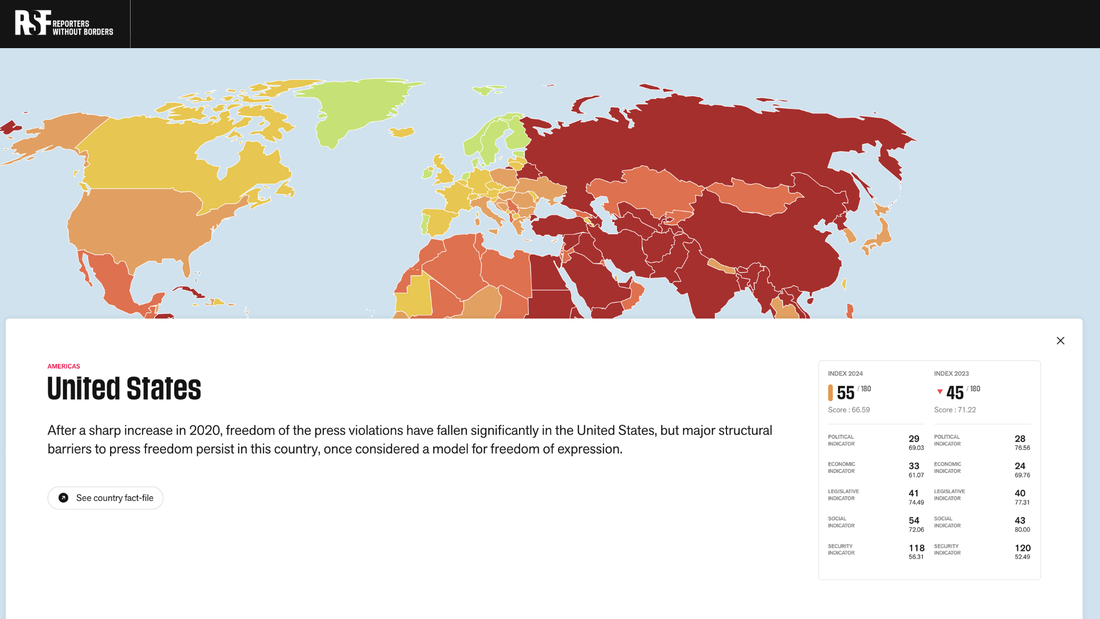
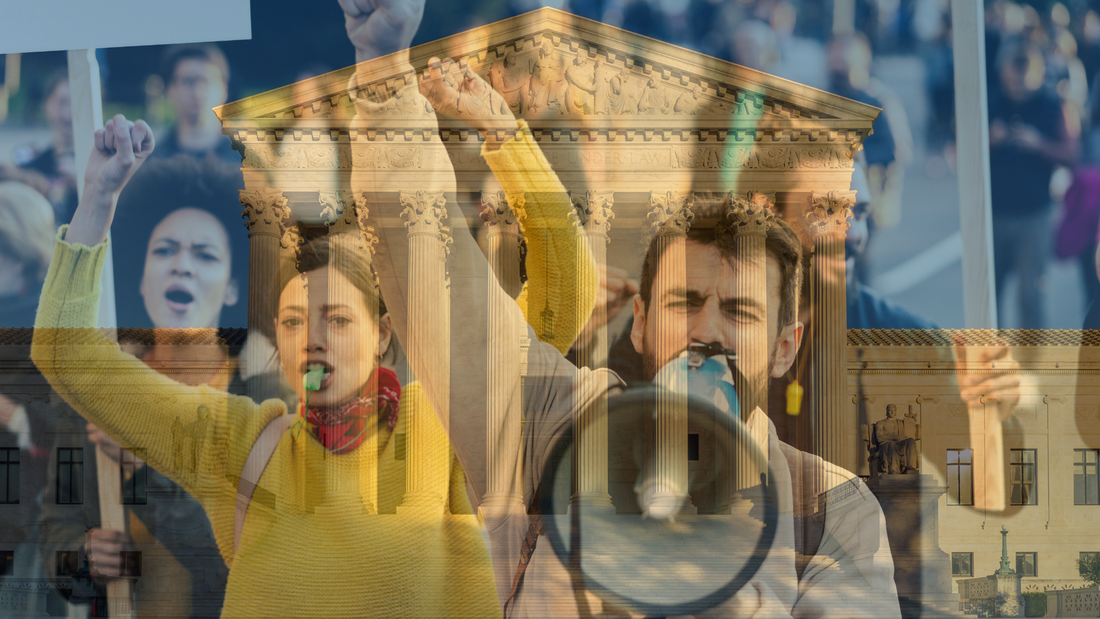
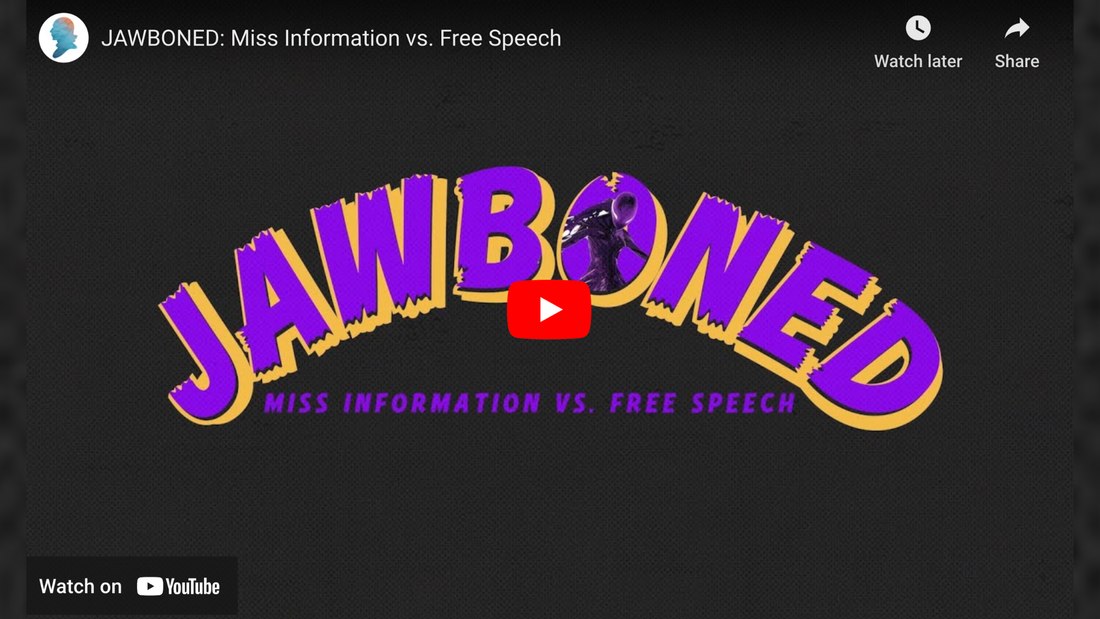
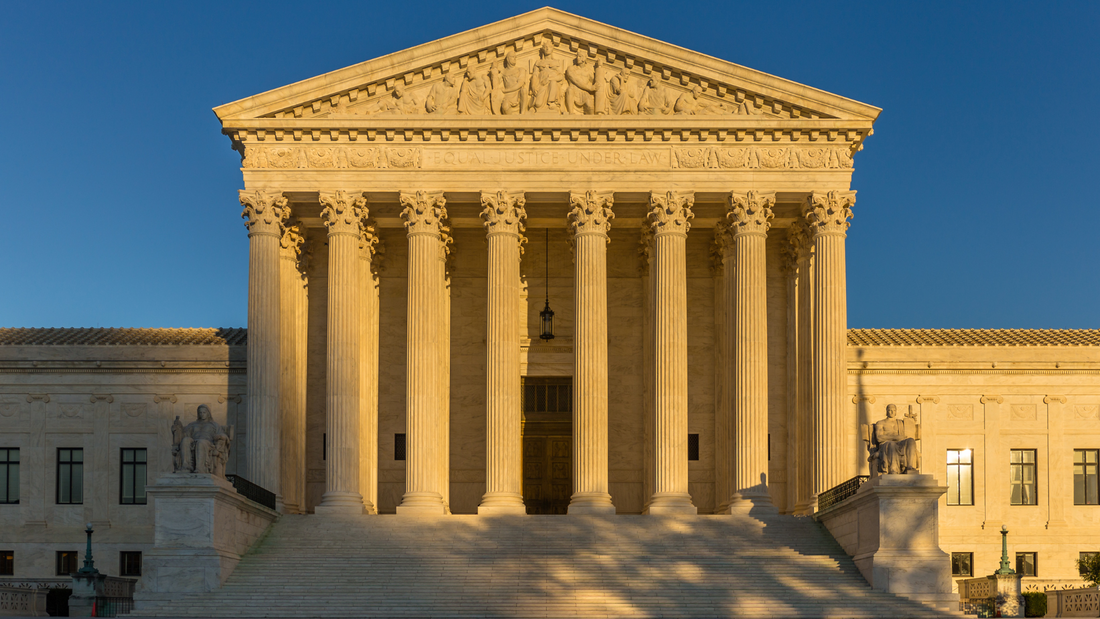
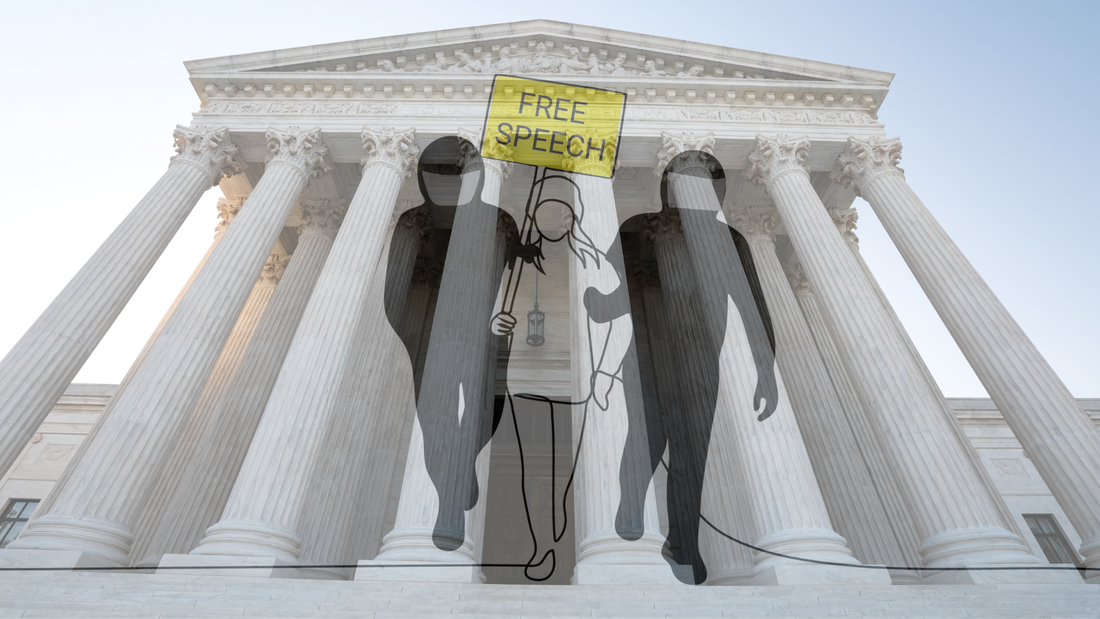
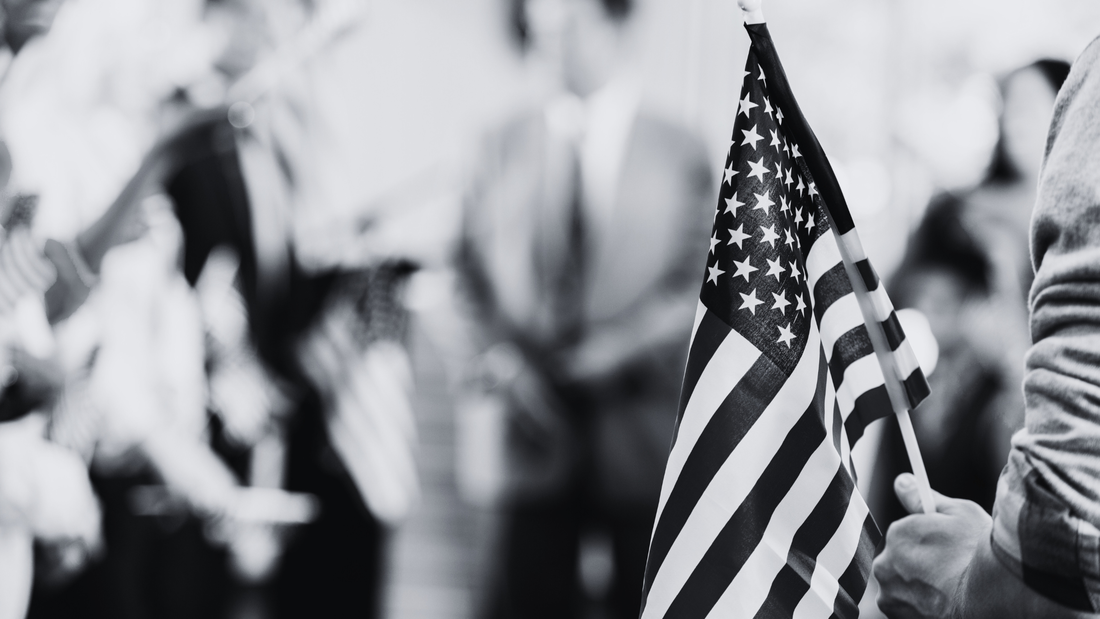
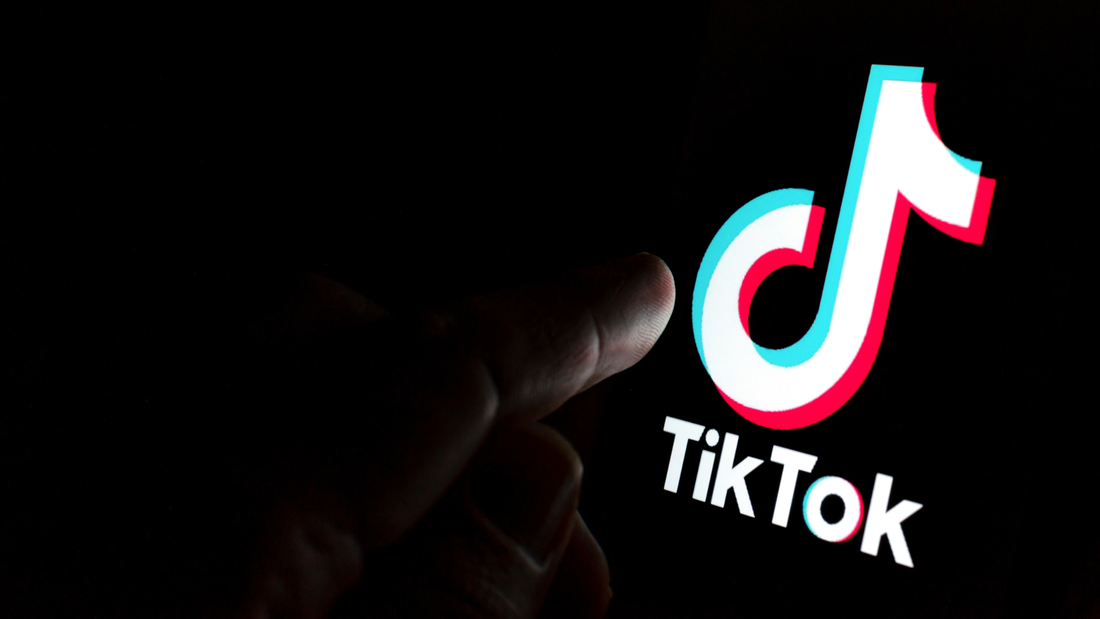
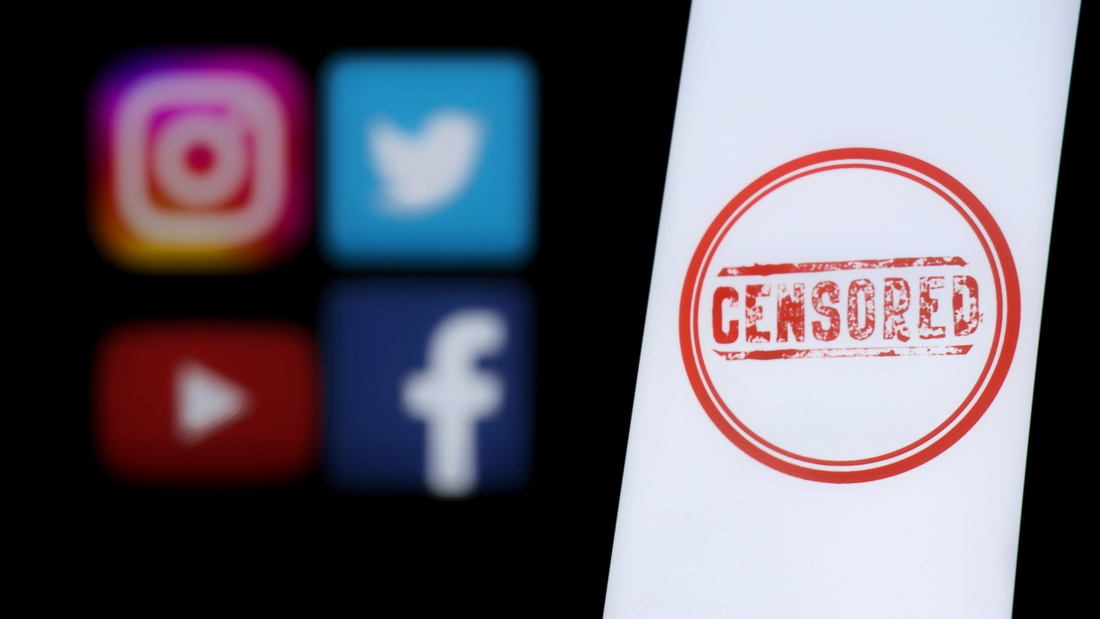
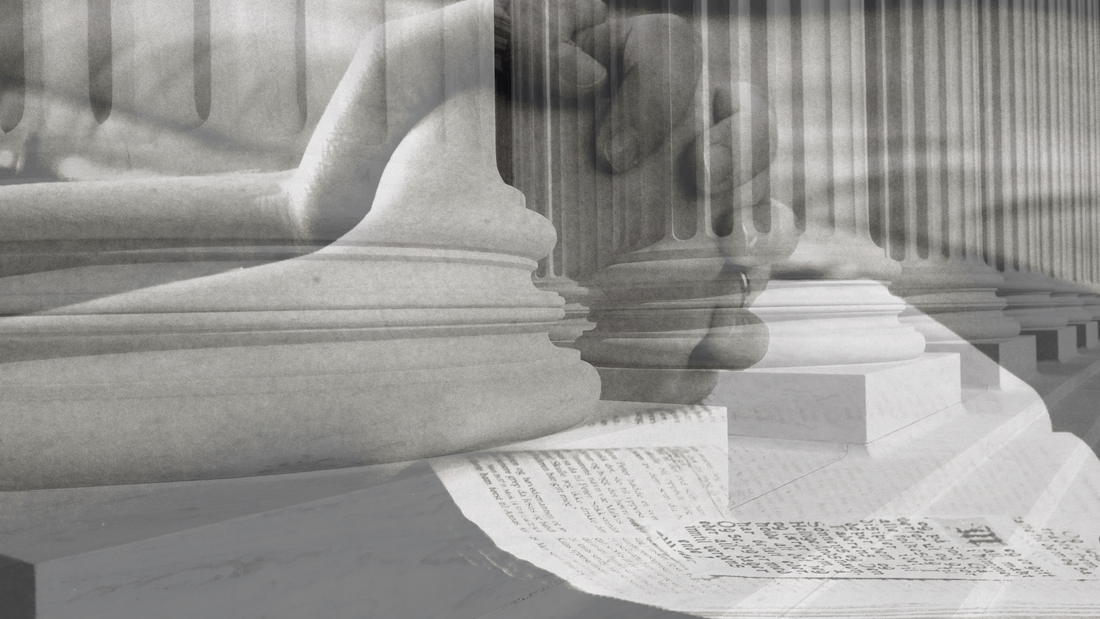

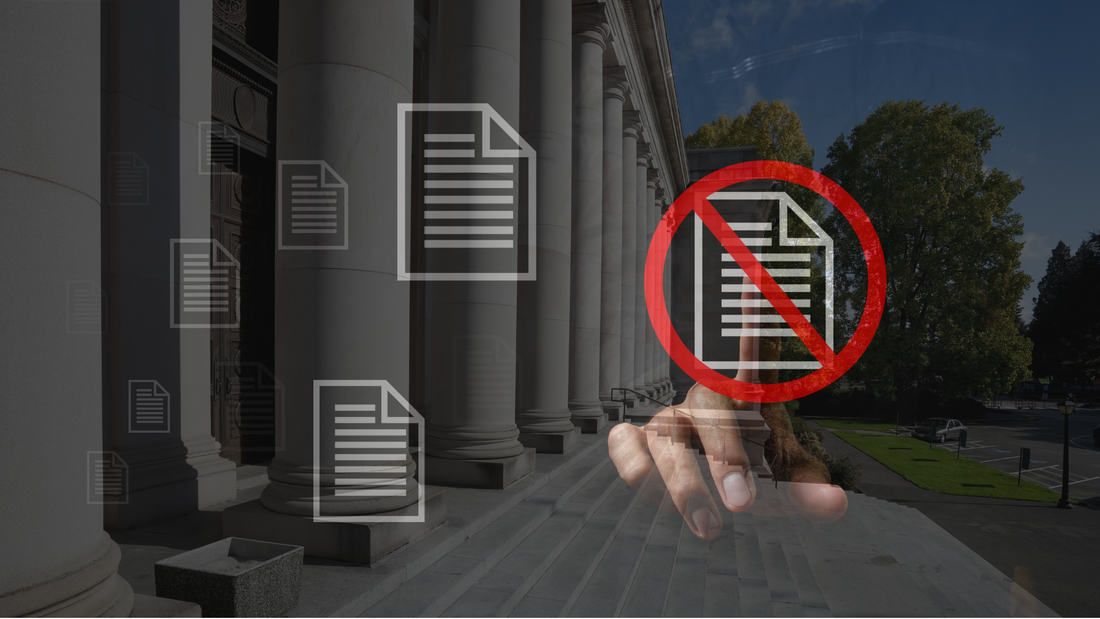

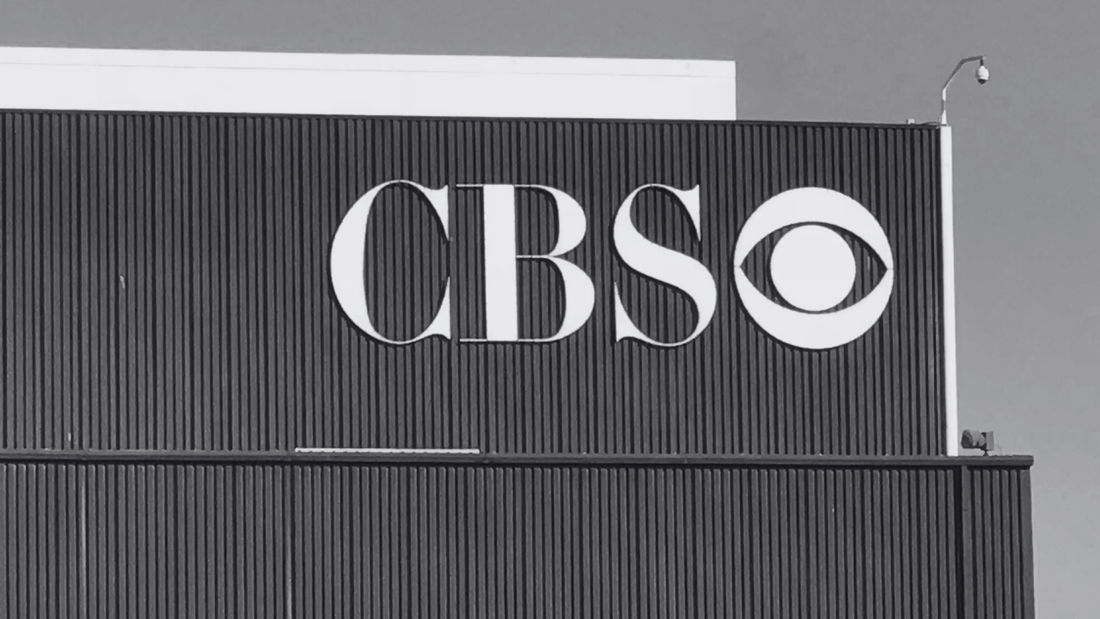
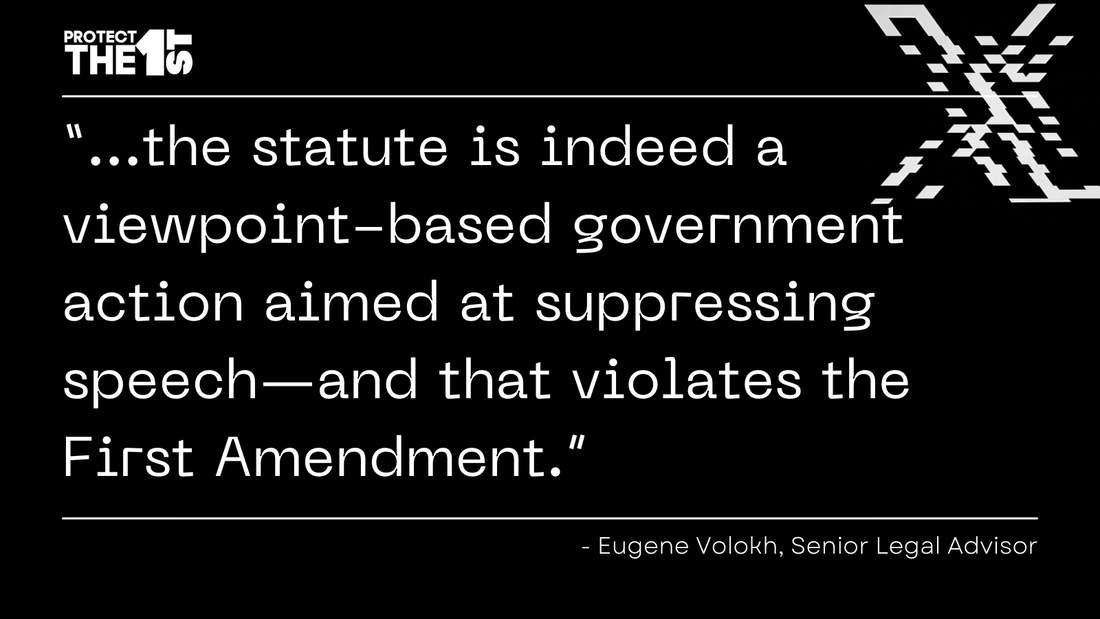
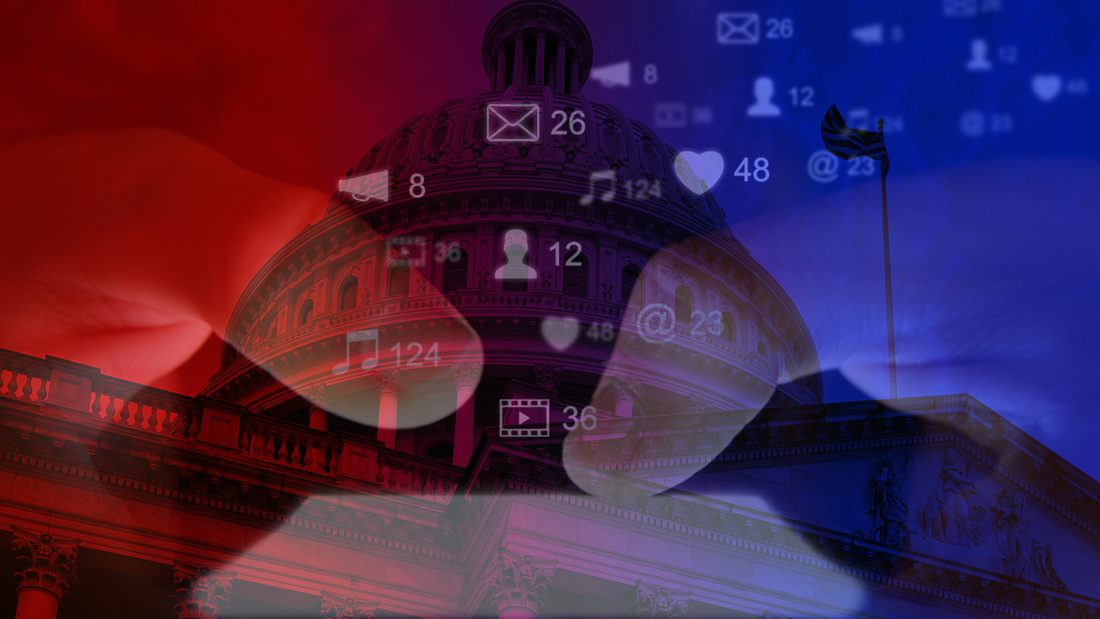

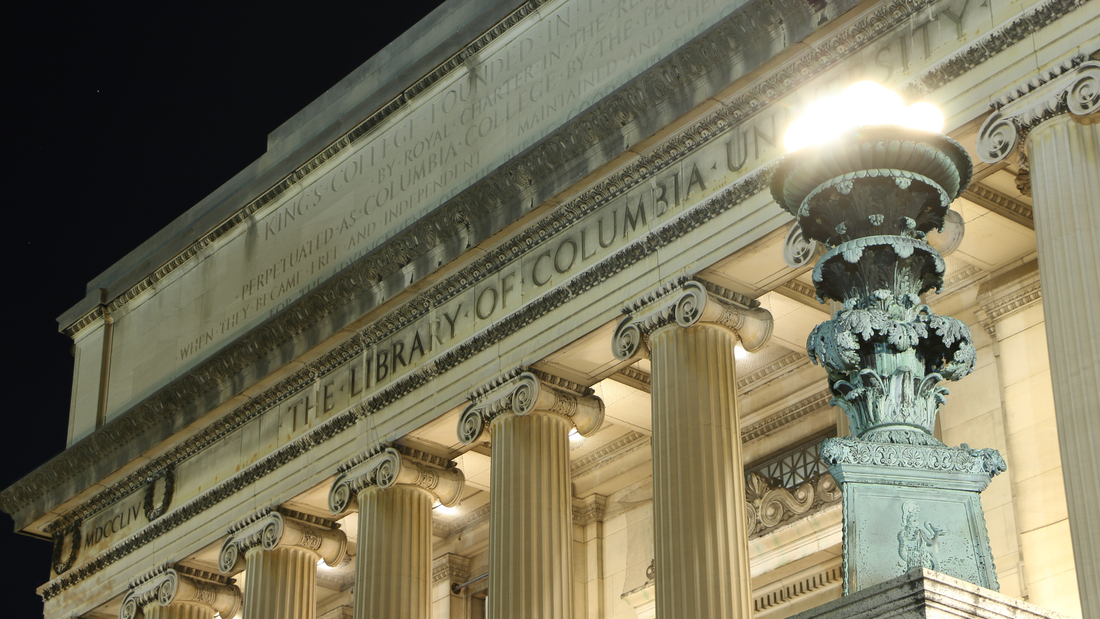

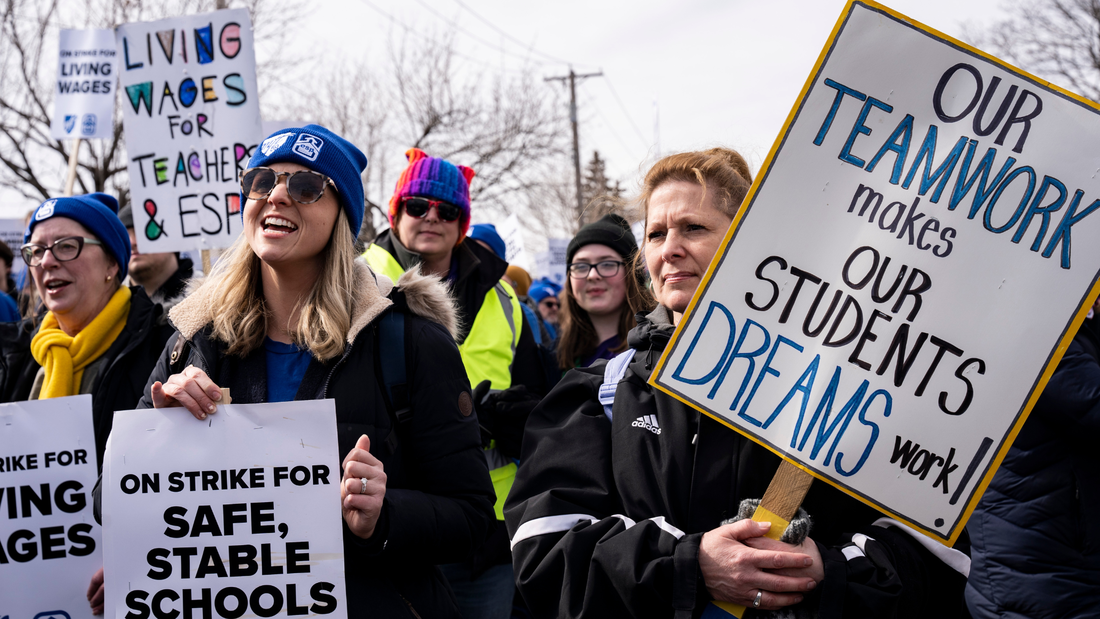
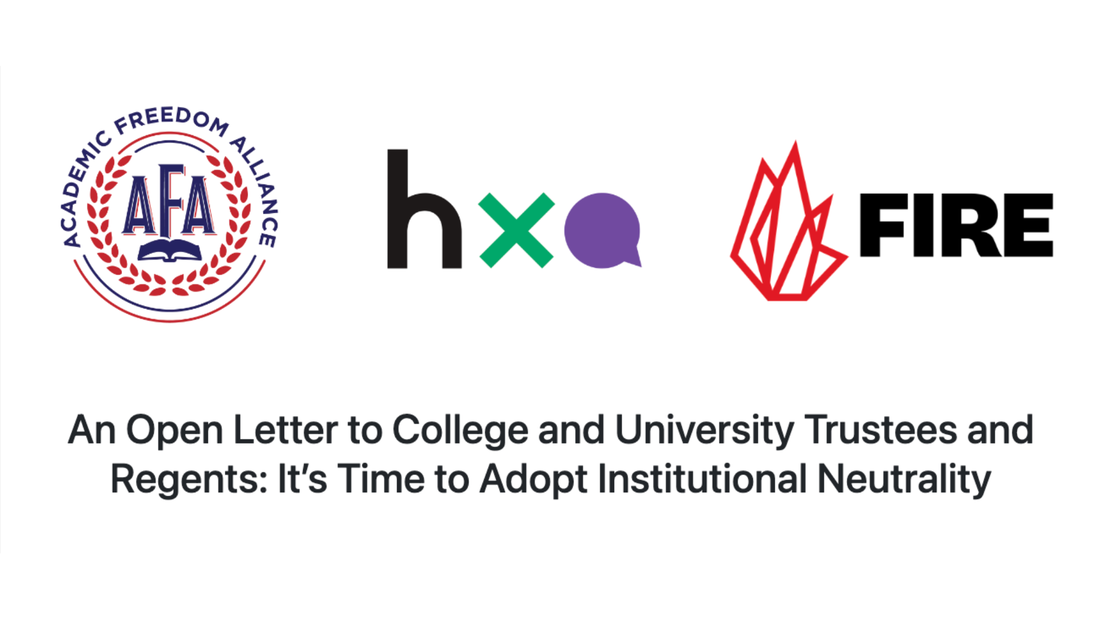

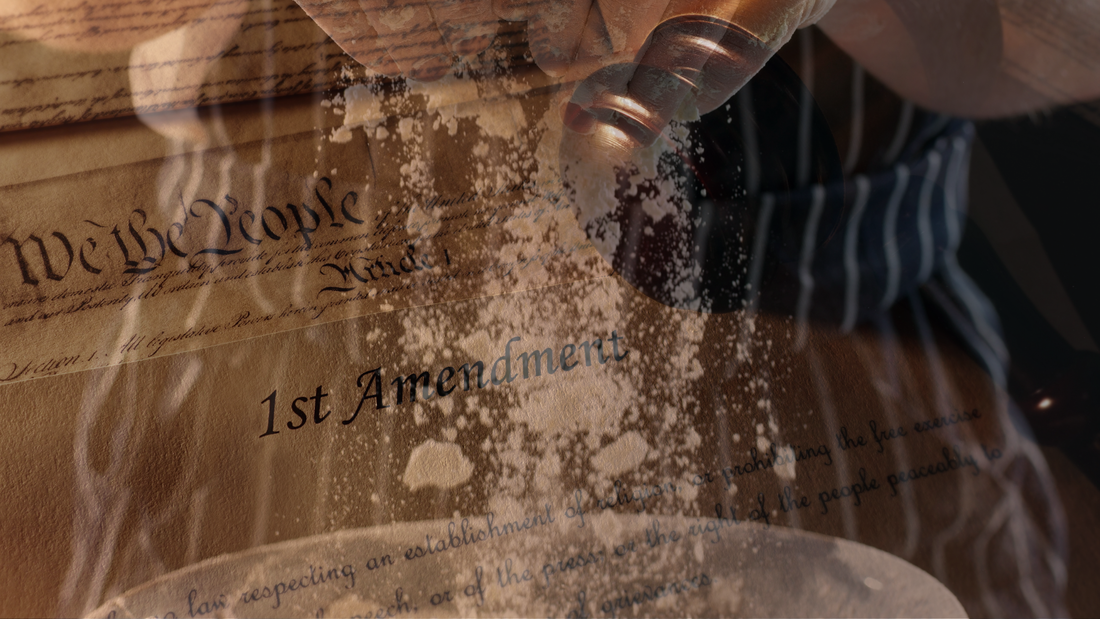
 RSS Feed
RSS Feed